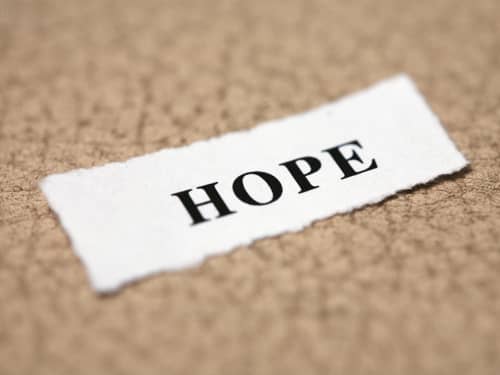I have always been the responsible type, with a superego big enough to make any psychoanalyst salivate. I like to believe I am in charge of my life. I like to believe I get out of life what I put into it. If I eat well--say no more than 25 grams of fat a day--I assume I will stay well and will never have cancer. If I exercise right--say minimally 20 minutes 3 times a week--I assume I will not get sick, and certainly will never have cancer.
But there is a flaw in that line of thought. What does it have to say about the 24-year-old aerobics instructor in my support group who has breast cancer? How about my brother-in-law, the health nut? He has, since his youth, eaten only the best foods and exercised like a madman. And yet he was diagnosed with testicular cancer. He is well now, thank God, but he wears a T-shirt that says, "Eat right. Exercise. Die anyway."
Death is perhaps the ultimate evidence that I am not in control of my own life. Given reasonable mental and physical health and freedom from pain, I do not know anyone who would want to die. And yet it happens to each of us.

| ||
| What kind of God allows women to get breast cancer? What kind of God creates a world in which every living thing eventually dies? | ||
 |
I do not believe, as some of my friends do, that God caused my cancer. I do not believe that God works like the Gary Larsen "Far Side" cartoon that shows God punching the "Smite" key at a computer, while the monitor shows an unsuspecting man about to meet his death by a falling piano.
On the other hand, if I believe in a God who is all-good and all-powerful (and I do), I must also believe that if God did not cause my cancer, she certainly permitted it. This is where things get scary. I would rather blame myself for my cancer than face these questions about God. What kind of God allows women to get breast cancer? What kind of God creates a world in which every living thing eventually dies?
It is hard for me not to picture God as a huge, all-powerful Karen, stripped of sin and psychopathology. It is tempting for me to say, "If I were God, I would never let women get breast cancer. I would never let anyone die." I cannot imagine how it can be that I am more compassionate than God.
And here I draw close to the reason I would rather blame myself than God for my cancer. If God is good and yet allows cancer and death, then it must be that God is "good" in a way I cannot even begin to understand. In looking through the lens of eternity, that unfamiliar God may see that my cancer is, indeed, "good." Perhaps that strange God allowed my cancer to develop for a particular reason. I cannot understand it at all. I do believe that one day, on the other side of death, I will understand.
This God I have discovered is not very likable. She is much wilder than the God I always met in Sunday School and church, tied up in a neat little package labeled "God is love."

| ||
| Many of my friends are horrified by the God I have come to know. But I love her, first and foremost, because she takes the job of being God away from me. | ||
 |
Living with breast cancer has torn me away from the God I used to know and initiated me into the priesthood of a very different God. This God is bigger, less understandable, less like me, more concerned with my eternal life as a whole than my misery of the moment. This is a God of mystery. As I said, I do not know that I like her very much. But I passionately love her.
Many of my friends are horrified by the God I have come to know. But I love her, first and foremost, because she takes the job of being God away from me. She is so different from me that I know I cannot control the world, my life. She is so involved in my day-to-day life and yet so grounded in eternity that she knows with absolute certainty what is good for me in my life as a whole.
Since my original diagnosis, I have always had plenty of people willing to help me figure out whether I caused my cancer. When I meet and get to know someone new, it almost always comes up. I finally came to understand why this happens. If my new friend can pinpoint the cause of my cancer, then that means she can avoid that cause and keep herself safe. To believe that, even unconsciously, is easier than recognizing the essential chaos in our world and our own vulnerability.
The creation of my cancer is not my major concern these days. Perhaps that is because I am four years out from my diagnosis. Maybe it is because I face death every day, and my thoughts automatically move to larger questions and longer spans of time. So the short answer to the direct question of whether I created my cancer is this: "I don't know. Probably." But the considered answer has to be, "No. I am not God."
Reprinted with permission from "Speak the Language of Healing: Living with Breast Cancer without Going to War," by Susan Kuner, Carol Matzkin Orsborn, Linda Quigley, and Karen Leigh Stroup. Copyright 1999 by the authors. Permission granted by Conari Press.

Do you have questions you'd like Karen or any of her co-authors to answer? Please send them in an email to: columnists@staff.beliefnet.com. Be sure to include "Speak Healing" in the subject line.


